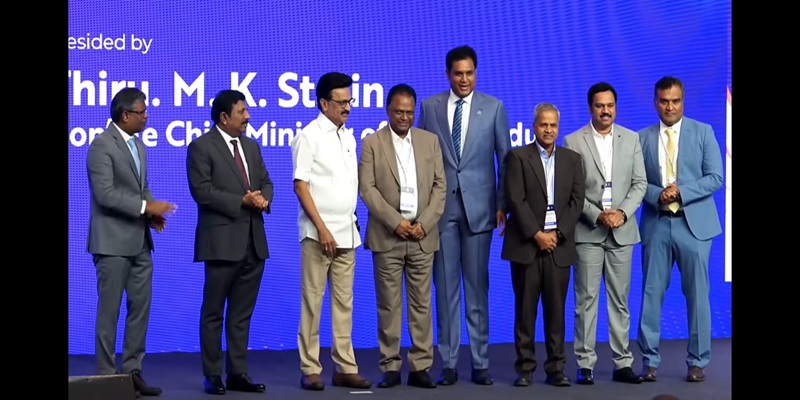Schedule a Call Back
Budgeting for growth?
 Articles
Articles- Feb 06,24

The interim budget 2024-25, announced by Union Finance Minister Nirmala Sitharaman on February 1, 2024, has allocated Rs 11.11 trillion as capital expenditure (capex) for the next financial year – which is 3.4 per cent of the GDP and 11.1 per cent more than the planned capex of Rs 10 trillion for FY24. Infrastructure sectors (roads & railways) - with a combined share of more than 45 per cent in total capex - continue to be the focus of the government to drive economic growth. This augers well for the manufacturing sector because of the cascading positive effect of the developing infrastructure – both in terms of business generation as well as improving efficiency (due to better logistics facilities).
The budget proposal to strengthen EV ecosystem through support of manufacturing and charging infrastructure will push EV sales up - potentially benefitting companies in the EV space which will encourage higher spending on R&D and innovation.
The proposal to convert 40,000 normal rail bogies to the Vande Bharat standards for enhancing safety, convenience and comfort of passengers, which propel demand for engineering goods. For India’s tech savvy youth, interim budget proposes to establish a corpus of Rs one trillion with 50-year interest free loan. The government also plans to launch a new scheme for strengthening deep-tech technologies for defence purposes and expediting ‘atmanirbharta’. All these measures are expected to encourage the private sector to scale up research and innovation significantly in sunrise domains.
In the recent years, the government has taken several steps - including Made in India (in 2014) and the Production Linked Incentive (PLI) scheme in March 2020 - to propel manufacturing in the country. The basic idea of PLI scheme (rolled out for 14 sectors, with a total outlay of nearly $ 24 billion) was to pick sectoral winners and provide them with incentives. There are clear signs that the PLI scheme is working on the ground in a few sectors such as electronics (especially smartphone assembly), bulk drugs, food processing, etc resulting in a substantive increase in investments and exports. As of November 2023, the PLI schemes have attracted more than Rs 1 trillion investment, recorded sales of Rs 8.61 trillion, and directly and indirectly created over 6.78 lakh jobs, according to the government. If other sectors (like textiles, solar photovoltaic modules, advanced chemistry cell batteries, etc), which have seen disappointing results so far, start to delivery, then one can witness a more profound effect of the PLI scheme.
Indian economy made a strong start to 2024, with services activity climbing to a six-month high and manufacturing picking up pace (as per HSBC Holdings' new flash survey). The purchasing managers index (PMI) for services rose to 61.2 in January 2024 from 59 in December, while the manufacturing PMI increased to a four-month high of 56.9. A reading above 50 indicates expansion compared with the previous month. Heartening news is: new orders rose at a faster pace than a month ago, with international orders showing a good jump.
Despite global headwinds (due to geopolitical tensions, inflationary pressures, and slower growth in Western economies), India is expected to be the world’s fastest-growing major economies in 2023-24, with estimated GDP growth of 7-7.3 per cent. Through the interim budget, the government has shown its intent to strengthen manufacturing in sunrise industries such as renewable energy, electric vehicles, semiconductors, material sciences, aerospace & defence, etc to stimulate the economy. But, we need labour reform and more incentive for skilling or else we will not be ready for scaling up.
Related Stories

Mahindra Expands Advanced R&D and Testing Facilities at Chennai MRV
Mahindra & Mahindra invests Rs 1,960 million to expand its Advanced R&D and testing facilities at Mahindra Research Valley, creating 2,000 new jobs and reinforcing Chennai as an innovation hub.
Read more
Texas Instruments Opens New Semiconductor R&D Centre in Bengaluru
Texas Instruments has inaugurated a 550,000-sq-ft R&D centre in Bengaluru, marking 40 years in India and reinforcing its commitment to semiconductor design and innovation.
Read more
Ashok Leyland, PT Pindad Partner for Electric Buses and Defence Vehicles
Ashok Leyland has signed an MoU with Indonesia’s PT Pindad to jointly develop and manufacture electric buses and defence vehicles, supporting sustainable mobility and modern defence needs.
Read moreRelated Products

Ball Rail Systems
Jinisha Electrolites offers a wide assortment of ball rail systems













